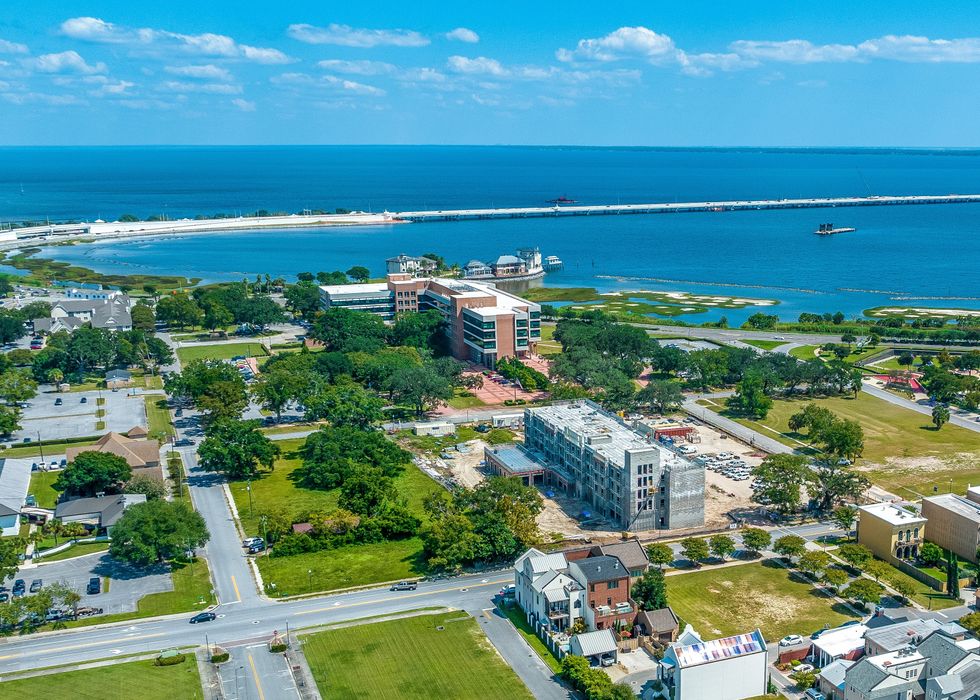NATALIE ROBINSON IS now vice president of people and culture for Peachtree Group. Also, the Atlanta-based company, led by Jatin Desai and Mitul Patel as managing principals, also says it’s on the way to a record year for new hotel construction.
Good with people
Previously, Robinson was the human resource director of title company OS National, according to Peachtree Group. She began her career developing accounting and billing policies and procedures, as well as human resources systems for two Atlanta law firms. She holds a bachelor's degree in sociology and criminal justice from the University of Georgia.
"It's an exciting time at Peachtree as our organization expands and evolves," said Vivian Clarke, Peachtree’s senior vice president of people and culture. "Natalie's strong leadership skills will advance our culture, drive our growth and talent strategy, and strengthen our reputation as an employer of choice. We are proud of Peachtree's high team member engagement, and the company culture built and recognize the opportunity to improve our people processes and discipline as we further scale the business."
Peachtree made several changes to its structure and leadership in September.
Record growth in openings
During the recent Lodging Conference in Phoenix, members of Peachtree’s leadership team released the latest numbers for its development pipeline. By the end of this year, it expects to have opened or broken ground on 15 hotels, primarily select service, adding 1,500 rooms.
"While construction starts have been slowed by the pandemic and supply chain disruptions, we have successfully navigated these issues and remain on track to deliver the most hotel openings and groundbreakings in our history," Mitul Patel said.
The hotels opened this year include the 95-room Homewood Suites by Hilton in Destin, Florida; the 134-room Homewood Suites by Hilton in Louisville, Kentucky; and the 157-room SpringHill Suites in Baltimore, Maryland.
Peachtree expects the 132-room Hilton Garden Inn in Florence, Kentucky, to open later this year as well as two hotels in Florida, the Hilton Garden Inn in Pensacola and the Hampton Inn Delray Beach, during the first three months of 2023.
"These hotels are already performing extremely well, achieving among the highest performance within their competitive sets in their respective markets," said Patrick Short, president of Peachtree Hospitality Management, a division of Peachtree and operator of the properties. "These results are also a testament to the popularity of select-service hotels, which address today's traveler's value and convenience preferences."

The 11 groundbreakings, expected to begin opening in late 2023 and into 2024, include:
- 118-room SpringHill Suites in Lexington, Kentucky
- 112-room Residence Inn in Plainfield, Indiana
- 122-room Home2 Suites by Hilton in Ashburn, Virginia
- 274-room Tempo by Hilton and SpringHill Suites in Atlanta, Georgia
- 98-room Homewood Suites by Hilton in Jackson, Tennessee
- 120-room TownePlace Suites by Marriott in Palmdale, California
- 114-room Hilton Garden Inn in Buford, Georgia
- 123-room Homewood Suites by Hilton in Boca Raton, Florida
- 136-room Hampton Inn & Suites by Hilton in Maui, Hawaii
- 257-room Embassy Suites by Hilton in Gulf Shores, Alabama
- 151-room Curio by Hilton in Paso Robles, California
Seizing an opportunity
Peachtree also is building new hotels in opportunity zones, the special districts created under the Tax Cuts and Jobs Act of 2017 to spur economic growth and create jobs in low-income communities. It provides tax breaks to incentivize investment in roughly 8,700 regions across the country.
"While not every opportunity zone needs a hotel, these zones are typically in downtown markets, near airports, near industrial parks, near universities, places that hotels have historically done well," said Brian Waldman, Peachtree’s CIO. "Investing in these areas positively impacts low-income communities, as they can boost economic growth and job creation."
Peachtree will break ground on three opportunity zones, including the Hampton Inn and Suites in Maui, which will be only the second-branded hotel in the Maui airport area. The other two are in Paso Robles, California, and Plainfield, Indiana.
"Hotel investments are poised to be the most resilient commercial real estate asset class in today's macroeconomic climate, and we expect hotels to perform well for the foreseeable future. As new hotels outperform older assets, we expect to continue to be active in our development program," Waldman said.






